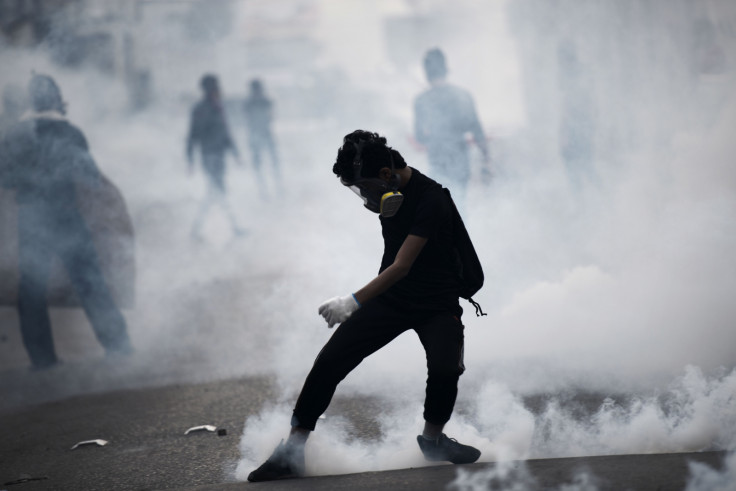Momentum is building against Bahrain's rulers as 33 states 'express concern' over human rights

What's the old saying – third time's the charm? For Bahrain, if we're lucky, it may have to be the fifth. On 14 September, the Swiss delegation to the United Nations Human Rights Council (UNHRC) issued a joint statement on behalf of 33 states including the US and UK – with more states expected to join – all expressing serious concern over ongoing human rights violations in Bahrain.
This statement is the fifth of its kind since 2012, nearly one for every year the al-Khalifa monarchy has maintained its violent crackdown on the pro-democracy movement.
When at first you don't succeed...
In this most recent iteration, the signatories rightly criticise the government of Bahrain's continued infringement on the freedoms of expression, assembly and association. The statement cites the government's failure to ensure due process for those arrested exercising these rights and it raises concerns regarding the Bahraini security forces' frequent use of arbitrary detention, torture and excessive force to target political activists and repress demonstrations.
These same authorities, the statement notes, are also allegedly responsible for the incarceration of children as young as 10, as well as reprisal attacks against past victims of abuse.
The 33 signatories urge the government of Bahrain to curb these repressive practices and to implement recommended human rights reforms. They close with a simple suggestion: "Revive the necessary conditions for the resumption of an open and inclusive national dialogue."
And yet, as the unrest in Bahrain prepares to enter its fifth year, this fifth joint statement reads all too familiar – and for the same old authoritarian reasons.
Denial
The current statement, though a welcome and timely addition to the international discourse, necessarily reiterates the points of its equally welcome and timely predecessors. In the 2013 edition, for example, the 47 signatories cited violations of the rights to freedom of assembly and association, the repression of peaceful demonstrations and the systemic lack of accountability for perpetrators – the same issues raised in 2015. Last year's statement was no different.
This redundancy belies any government claim to progress or international cooperation and it reveals, instead, a Bahrain mired in autocratic obstinacy.
Despite annual calls to reopen political dialogue, the government has demurred, shielding itself behind superficial reforms, moral relativism and – not least of which – the extensive political influence of Saudi Arabia. Following the lead of its more powerful big brother, Bahrain's government has selectively exploited increasingly securitised discourse to evade its human rights commitments and deflect international scrutiny.
Rather than fully acknowledge these obligations, domestic or international, the government has simply gilded its still-robust authoritarian infrastructure in empty reform.
To do otherwise – to address the underlying causes of unrest as previously requested by the international community – would require the government to recognise legitimate political grievance in Bahrain. This admission would not just jeopardise the monarchy's ultimate claim to power, it would also expose the government's role in a broader political crisis of its own making.
In the absence of any such admission, the government of Bahrain has inevitably proceeded with a militarised response to the unrest; an "oppress-and-see" approach to what it purposefully mischaracterises as loose sectarian strife. It is therefore equally unsurprising that the new joint statement has been forced to echo the same concerns as even its first 2012 counterpart. From the very start, the government worked to deny and obscure the root cause of the crisis, ignoring what would become routine international criticism of its violent security measures.
A new resolve
Encouragingly, though, this fifth joint statement does not merely illustrate perpetual government intransigence. With its 33 signatories – five more than the first round in 2012 (which had 27) – this new statement represents an international community committed to human rights in Bahrain, even when Bahrain itself is not. The signatories have built on the hard-earned momentum of the previous four statements, and have laid out yet another roadmap for the development of real, stable civil society in Bahrain.
Although – or perhaps, because – this growing momentum has met with consistent government denial, it also signals a ripe opportunity: the passage of a comprehensive UNHRC resolution on Bahrain.
The government has had five chances to improve on the same human rights issues and, excluding superficial reform of some state-sponsored human rights institutions, it has failed every time. Each subsequent statement, however, has evidenced broader international support and progressive international leadership.
The newest joint statement marks the time to fully capitalise on these resources, just as it should mark the Bahraini government's last chance to demonstrate a real commitment to human rights. If the fifth statement isn't the charm, then maybe a substantial resolution – with the full support of the UN – might begin to do the trick.
Sayed Ahmed Alwadaei is director of advocacy at the Bahrain Institute for Rights and Democracy and Michael Payne is international advocacy officer at Americans for Democracy and Human Rights in Bahrain.
© Copyright IBTimes 2025. All rights reserved.






















